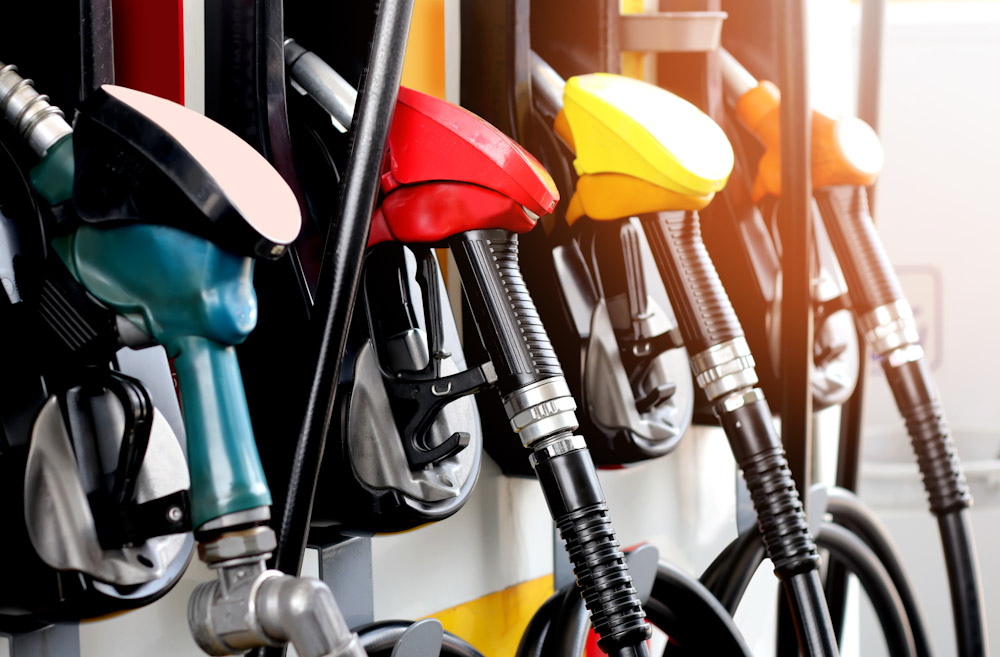According to reviews.com, the average gas tank is around 12-15 gallons which means we are filling up our vehicles between 45 and 55 times each year. Given the average 11 year lifespan of a car, each automobile will see about 500 trips to the fuel pump. Despite our familiarity with the gas station, many don’t know exactly what it is they are putting in their cars. To make matters more complicated, there are different options of gasoline to choose from. Do these fuel grades make a difference? Well, for those who have questions, we have answers. Here are some gasoline insights from your Medford auto repair experts and Shulz Garage.
First, a Definition
Gasoline, also known as petrol, is a transparent, flammable liquid that is primarily used as fuel in most spark-ignited internal combustion engines. Its high flammability is perhaps its most valuable characteristic. When gasoline engines an engine’s cylinder, the spark plug ignites the gasoline/air mixture creating heat and exhaust. The resulting combustion energy is ultimately what turns the wheels of the vehicle.
Gasoline is derived from petroleum, a naturally occurring crude oil. Petroleum is found in geological formations underground and is refined in a process known as fractional distillation. Once distilled, additives are introduced to yield the gasoline we put into our vehicles. One of the most important additives is called Octane.
Understanding Octane Ratings
An octane rating is a measure of the capability of a fuel to resist compression before it spontaneously self-ignites. You may hear auto care professionals use the term “knocking.” This term, by definition, is an occurrence within the internal combustion engine in which some of the fuel/air mixture in the cylinder does not combust due to ignition from the spark plug but rather an explosion outside the envelope of the normal combustion front. The greater resistance the fuel has to compression, the less knocking there will be.
In most cases, occasional knocking isn’t harmful, but if your vehicle requires a certain fuel grade and you are neglecting this requirement, it will likely cause problems over time. Based on the octane rating, there are three common grades of fuel of which you are most certainly aware. These grades are represented by the octane number which is a simple average of two different octane rating methods.
Regular (Generally 87)
The lowest octane fuel. If your vehicle has no octane rating specifications, you should be okay to use this fuel.
Midgrade (Generally 89-90)
Some makes and models require at least midgrade fuel. Before filling up your new car, be sure to check the owner’s manual.
Premium (Generally 91-94)
Premium is the highest octane fuel. Although more expensive, it greatly reduces engine knock and is required for some vehicles (typically luxury models).
Which Should You Use?
Again, the higher the octane rating, the more stable the fuel. If your has specifications with regards to which fuel to use, you are well-advised to follow those guidelines. If there is no specification, you should be fine using any of the three, however, less knocking could benefit your engine over time. Although slightly more expensive, it is never a bad idea to upgrade from regular to midgrade fuel if your budget will allow it. At the end of the day, it’s up to you.
Your Medford Auto Car Experts
For over 65 years, we have been servicing vehicles in Medford, garnering more expertise year after year. If you are in the Medford area and have an auto repair or maintenance need, we would be happy to help. Our trusted mechanics provide best-in-class, friendly service quickly, thoroughly, and affordably. Schulz Auto truly is Medford’s best.

